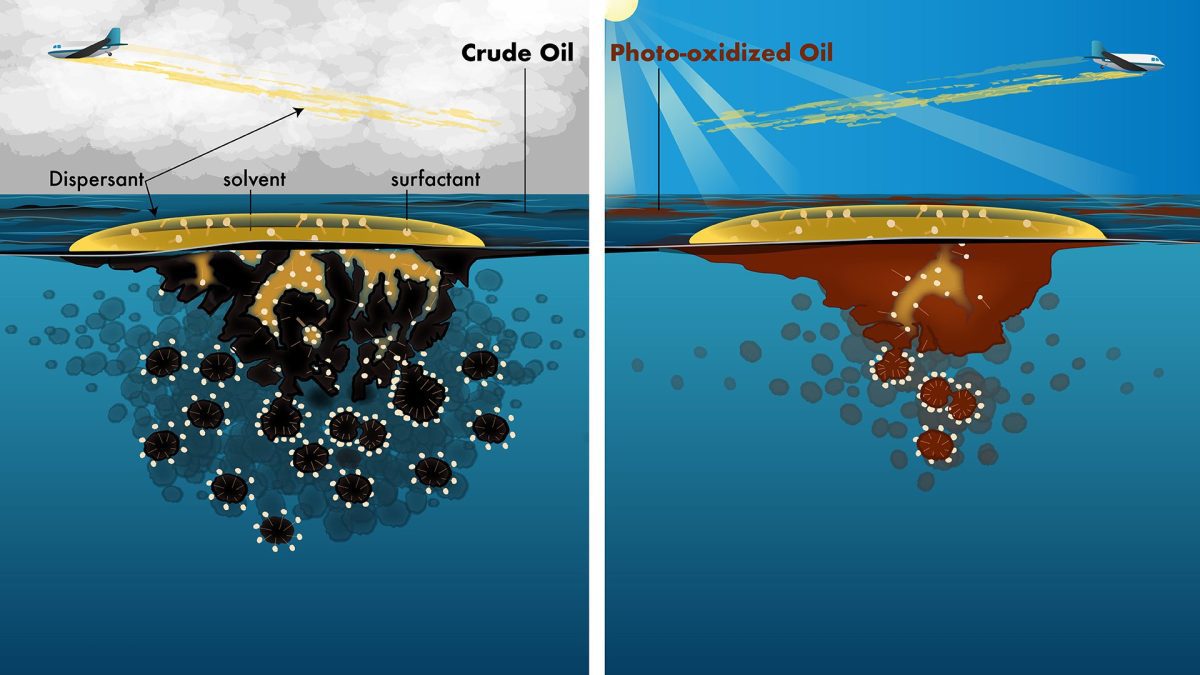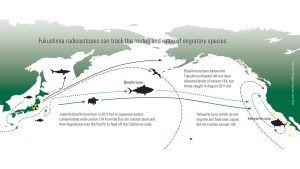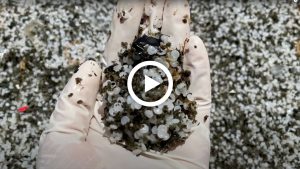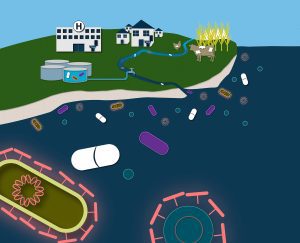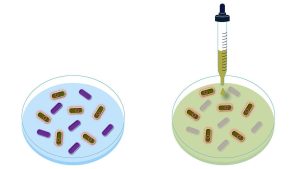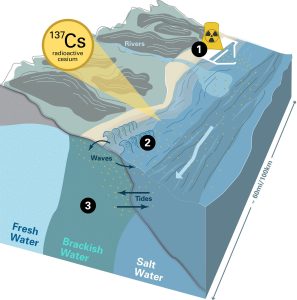A recent study by WHOI scientists Collin Ward and Chris Reddy showed that sunlight plays a critical and previously overlooked role in oil spills. Light energy rapidly alters the chemistry of oil floating atop the ocean which could dramatically change how responders use dispersants to clean up spills. Dispersants contain detergents (surfactants), which break oil into small droplets that can disperse in the ocean. They also contain an organic solvent that helps surfactants mix with both oil and water. The solvent is not as effective on photo-oxidized oil, so dispersants are less effective on oil that has floated on the sea surface for a few days, especially during sunny weather. Left panel: On cloudy days, the solvents are effective, enabling surfactants to create small droplets that can more easily sink, or be diluted in the ocean, eaten by microbes, or evaporated. Right panel: On sunny days, sunlight oxidizes oil into compounds that are only partially soluble in the solvent. This limits surfactants ability to break oil into droplets. (Illustration by Natalie Renier, © Woods Hole Oceanographic Institution)
Image and Visual Licensing
WHOI copyright digital assets (stills and video) contained on this website can be licensed for non-commercial use upon request and approval. Please contact WHOI Digital Assets at images@whoi.edu or (508) 289-2647.
